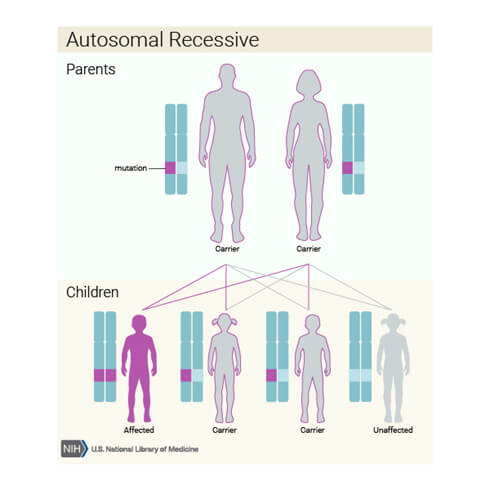Lilac Insights



Thalassemia Screening is the process to screen for all the hemoglobinopathies, which means disorders affecting the function of hemoglobin in the blood, to find out if a person (especially a parent) is affected by Thalassemia or is a carrier of Thalassemia. The hemoglobinopathies include Alpha, Beta, Delta Thalassemia, Hemoglobin E, Hemoglobin D, Sickle Cell Anemia, Hereditary Persistence of Fetal Hemoglobin (HPFH).
Thalassemia Carrier Screening is one of the most effective ways of ensuring that your child does not suffer from Thalassemia, a crippling lifelong blood disorder. In severe cases, it can also be fatal, so the screening as well as the diagnosis of this condition is required to minimize the occurrence.
It is a type of hemoglobinopathy, a blood disorder in which the production of hemoglobin reduces. Due to the reduced hemoglobin levels in the blood, there is a reduced oxygen supply to the body.
Thalassemia Screening is an advanced genetic test conducted on normal blood samples that help to evaluate whether a potential parent or an individual is a carrier of the Thalassemia gene or is affected by the disorder. The screening checks for various hemoglobinopathies like Alpha, Beta, Delta-beta Thalassemia, HbE, HbD, Sickle cell disease, Hereditary Persistence of Fetal Hemogloin (HPFH).
Screening is the first step & this identification helps determine the further course of action for doctors as well as the prospective parents. Statistically speaking there is a 3-4% chance of fetuses suffering from genetic conditions.
A patient should not have a history of blood transfusion as Thalassemia screening results are invalid if an individual has undergone blood transfusion. Apart from that, there is no requirement.
For prospective parents who have tested positive for Thalassemia carriers, the only requirement is pregnancy. Only after a pregnancy can doctors perform additional confirmatory tests to check if the fetus is also affected or the baby is normal.
Regular blood drawn from the veins also called peripheral blood.
There is currently no cure for Thalassemia, however, there are some therapies available which include:
Thalassemia can be prevented by preconception or prenatal screening for Thalassemia. If parents are found to be carriers for Thalassemia, genetic study for the fetus can be done to find out if the fetus is normal, a carrier like the parents or is affected with Thalassemia.
Lilac Insights offers a Thalassemia Carrier Screening which informs couples whether they are carriers of the Thalassemia & if so, upon further investigation, whether the unborn child will be affected or not by the disorder.
Thalassemia screening first and foremost gives expecting parents Peace of Mind by providing information on whether or not they are carriers of Beta Thalassemia (B-Thalassemia). This in turn informs them much in advance about the risk to the health of their unborn child. Based on this information, the couple can undergo further testing to find out if the fetus is affected with the disease, is a carrier of the disease or is unaffected. Secondly & more importantly, because genetic disorders are non-treatable, a child affected with B-Thalassemia requires special and expensive medical treatment with low survival rates. In case the results reflect a disorder, Thalassemia Screenings give parents the choice & freedom of making informed decisions concerning the outcome of their pregnancies & the future their loved ones.
If a Thalassemia Screening result comes back as positive for both the parents, the second step is to go for what are known as Confirmatory Tests. These tests confirm if the fetus is indeed affected by Thalassemia which is reflected in the primary screenings.
Confirmatory or Definitive tests for checking chromosomal abnormalities are invasive and carry a risk of miscarriage. Thalassemia screening will help to identify those pregnancies that are at a high risk of carrying a fetus with the disorder hence needs an invasive test. Those parents that do not show as positive for Thalassemia carriers need not expose their pregnancies to undue harm by doing an invasive test.
Established practice across the world in developed countries is for all couples who are planning on conceiving or those who have already conceived to be offered Thalassemia Screenings by their doctors. Hence ideally, all parents should screen themselves before having children. Few geographical regions, like the northern part of India are known to be belts of various hemoglobinopathies. So people from northern belt of India are at a higher risk of suffering from Thalassemia. Among other factors, consanguinity increases risk for autosomal recessive disorders & Thalassemia is one. So checking for Thalassemia among other disorders is recommended in cases of consanguineous marriages.
As genetic diseases can either be passed on from a parent to child or occur spontaneously during conception without any previous family history, ACOG, RCOG, RANZCOG & various other international medical & gynecological societies recommend that these among other screenings be done for all women.
Yes, if you wish to know about the health of your unborn child & not take any chances as even parents may not know if they are carrying the Thalassemia gene mutation. As genetic disorders may not show up in routine checkups, it is impossible to know if the fetus is normal unless it is screened. Hence it is less of a need based requirement & more preemptive & preventive focused.
It is important to note that NOT all genetic & chromosomal disorders are inherited as some disorders occur spontaneously (de novo mutation) during conception; meaning no history of genetic disorders is even necessary for a child to suffer from one.
Some inherited disorders do not show any signs or symptoms of their presence for generations together due to their recessive nature as in case of Thalassemia carriers. This may falsely be interpreted as ‘no family history of genetic disorders’.
spouse screened to know if at all one or both of you are carriers of the Thalassemia gene. If so, the doctor can check the fetus through prenatal diagnosis to confirm if the fetus is affected or not.
For couples planning for a child, Thalassemia screening can be done either
It is important to note that while testing can be done up to 20 weeks, decision making on a genetically abnormal fetus becomes difficult as termination of an abnormal pregnancy is prohibited after 20 weeks as per the guidelines of PCPNDT Act (Pre-Conception and Pre-Natal Diagnostic Techniques Act, 1994, Govt. of India).
For babies there should be no testing from 0-6 months. Anytime post 6 months is fine.
Other individuals interested in checking whether they are carriers can do any time they wish to.
Unfortunately, genetic disorders cannot be detected beyond the given time frames. Conducting tests outside the screening windows would be futile. Also, by PCPNDT Act, India termination of pregnancy is allowed only up to 20 weeks. In the event the fetus is found to be suffering from a disorder, you will not be able to make an informed choice. Hence it is important you should get your B-Thalassemia testing done well before 20 weeks.
In most cases than not, your referring doctor will request these tests for you. But if you wish to do so directly or through your doctor who isn’t familiar with Lilac Insights, you can directly Contact Us & we will facilitate the process.
A trained phlebotomist or a nursing staff can draw the sample for the screening.
While there are no multiple screenings required, but if screened positive, additional prenatal screenings & confirmatory tests will be required during pregnancy.
For the parents, fetus or other individuals, there is no risk associated with Thalassemia screening.
No. B-Thalassemia is a genetic disorder. Genetic testing & diagnoses differs from ordinary pathology in several ways.
No. Specialized labs like Lilac Insights which is a Genetic Health Assessment & Diagnostic Center will conduct Thalassemia screenings. Genetic screenings need well equipped technical labs and analytical support staff to perform the test and scientific experts to interpret the results.
Choosing the right genetic service provider is the first step to ensure your child’s future is in safe hands. You can click here to see Why Lilac Insights would be a good choice.
You may discuss this with your doctor & upon mutual agreement, provide us with the contact details. We will get in touch with the concerned person & facilitate the process. Being market leaders, there is a high chance that they are already working with us.
If one of the parent screens positive for Thalassemia, the other must screen for it too. To understand the implications, one has to understand the chances of a child suffering from Thalassemia if parents screen positive.

25% chance child is unaffected with Thalassemia.
50% chance the child is a carrier (like parents).
25% chance child is affected with Thalassemia
In such cases confirmatory tests for Thalassemia may be required as the child has a significant risk of being affected.
If parents do not carry the Thalassemia gene, it is highly unlikely the child will be affected by the disorder. But as explained before, genetic mutations can be spontaneous & in most developed countries, it is mandated for doctors to recommend Prenatal Screenings to prospective parents. You can visit our Prenatal Screening section to know more about risks of genetic disorders affecting pregnancies.
Your doctor will help you understand and interpret the results. Need you require assistance in interpreting your B-Thalassemia screening results, feel free to get in touch with our genetic counsellors.
Screening normally takes about 3-4 days post arrival of blood sample at the lab, though the timelines can vary at it is case specific. Your doctor should have a digital report by the end of the week.
All pricings will be provided by your referring doctor.
For getting a screening done, the simplest way is to speak to your consulting Obstetrician or Gynecologist. As Lilac Insights is a market leader, there is a good chance they are already availing of our services. In the event your doctor is not familiar with Lilac Insights, upon mutual discussion you may provide us with your doctor’s details & we will get in touch with them to facilitate the process. You may also Contact Us directly & we will guide you through the process.
Just Contact Us by phone or email & we will guide you through the process.
I am interested in knowing more.
Feel free to contact for additional questions at contact@lilacinsights.com.